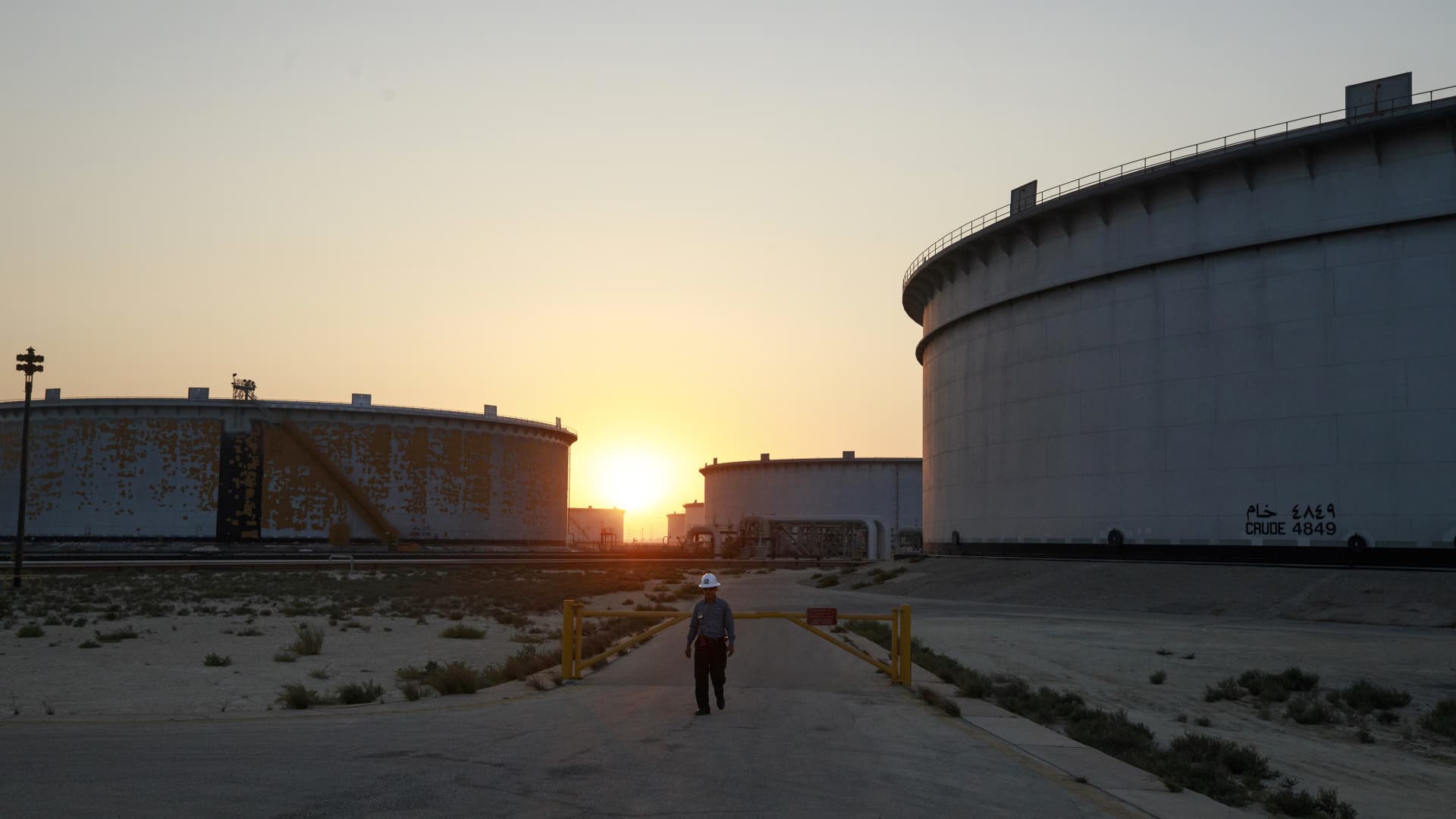
- What happened with the succession mess at Disney?
- Saudi Arabia extends its voluntary crude oil production cut.
- Meta's return-to-office mandate takes effect.
Here are the most important news items that investors need to start their trading day:
1. What's ahead
Get top local stories in San Diego delivered to you every morning. >Sign up for NBC San Diego's News Headlines newsletter.
Stock futures were lower Wednesday, putting Wall Street on track to build on Tuesday's losses. The Dow Jones Industrial Average finished close to 200 points, or roughly 0.6%, lower on Tuesday, while the S&P 500 and Nasdaq Composite were down 0.4% and nearly 0.1%, respectively. Wednesday will bring more economic data on the U.S. trade deficit and services industry, as well as a new beige book, which summarizes economic activity. A few companies, including GameStop, American Eagle Outfitters and ChargePoint will report earnings after the bell. Follow live market updates.
2. Disney's wildest ride
What happens when corporate succession goes wrong? Look no further than Disney, where Bob Iger is both the former CEO and, after a failed attempt at leaving the Magic Kingdom, the current CEO. CNBC's Alex Sherman reports how Iger hand-selected Bob Chapek as his successor, rushed through the process, gave himself a lingering leadership role at the company, then quickly had doubts. The battle between "Big Bob" and "Little Bob" involved everything from hippos to executive bathrooms to arguments on corporate jets, with building resentment between the two. Now, insiders wonder if Iger learned his lesson. People familiar with his thinking say he wants to retire at the end of 2026 and doesn't want his legacy to be marred by a failure to choose a worthy successor. But it's unclear what the process will look like this time, as Disney is likely to choose a new CEO around the beginning of 2025.
3. Oil cuts

Saudi Arabia extended its 1 million barrel per day voluntary crude oil production cut until the end of the year, according to state-owned media, saying it will review outputs each month. It first implemented the reduction in July and has since extended it on a monthly basis. The cuts are considered voluntary because they exist outside the official policy of OPEC+, which sets quotas for its members. Saudi Arabia's cuts come on top of the 1.66 million barrels per day of voluntary crude output declines that some members of OPEC have in place until the end of 2024. Russia also said Tuesday that it will extend its 300,000 barrels per day reduction of exports until the end of December 2023. Oil prices hit a 10-month high on the news.
4. Out of the metaverse

Meta employees are back in the office three days a week. Or, at least, they're supposed to be, according to a return-to-office mandate that took effect Tuesday. The company told employees about the coming change in June, noting that it will not affect Meta's fully remote workers who are not assigned to an office. Facebook parent Meta extended its remote-work policy to all full-time employees in June 2021, but has since rolled that back. Other tech giants, including Amazon and Google parent Alphabet, have also called workers back to physical locations.
5. Fed talk

Federal Reserve Governor Christopher Waller said positive economic reports will buy the central bank some time as it decides if it needs to raise interest rates again to control inflation. "That was a hell of a good week of data we got last week, and the key thing out if it is it's going to allow us to proceed carefully," he told CNBC's Steve Liesman during a "Squawk Box" interview. Friday's jobs report from the Department of Labor showed better-than-expected job growth in August and average hourly earnings rose less than forecast. Also last week, the Fed's preferred inflation gauge rose just 0.2% in July, and job openings, a key measure of labor market tightness, fell to their lowest level since March 2021. Waller, who has often favored tighter monetary policy and higher interest rates, said the key is to "see whether this low inflation is a trend or if it was just an outlier or a fluke."
Money Report
— CNBC's Alex Sherman, Ruxandra Iordache, Hayden Field, Jonathan Vanian, Jeff Cox and Reuters contributed to this report.
— Follow broader market action like a pro on CNBC Pro.






